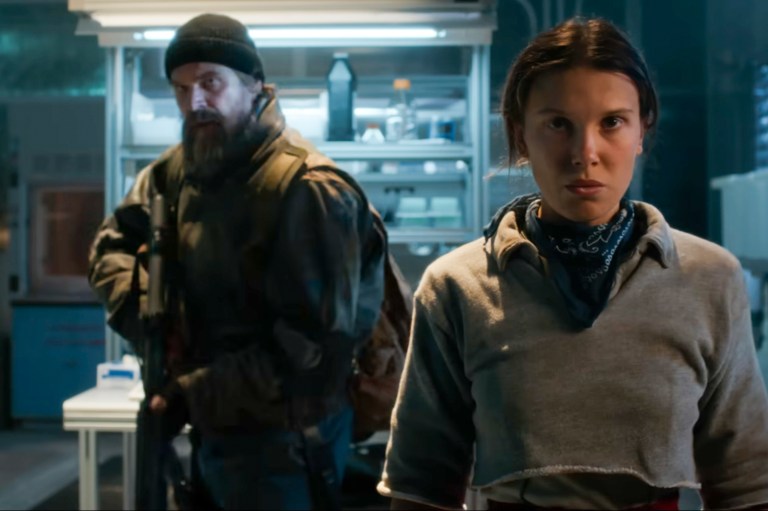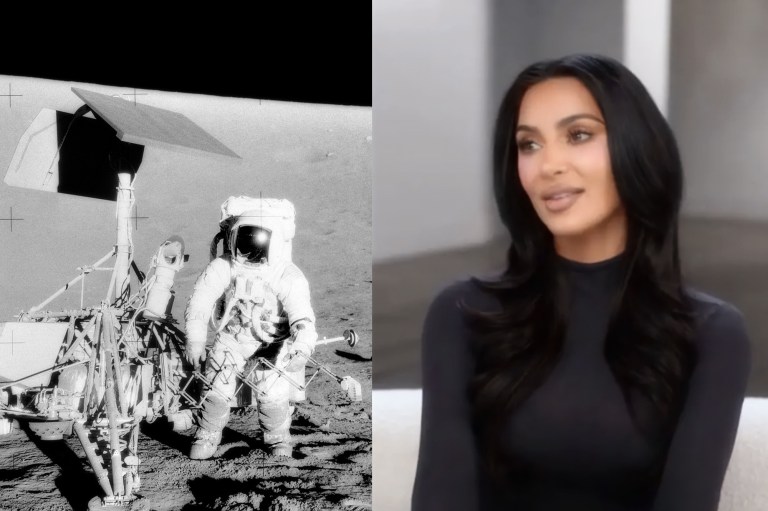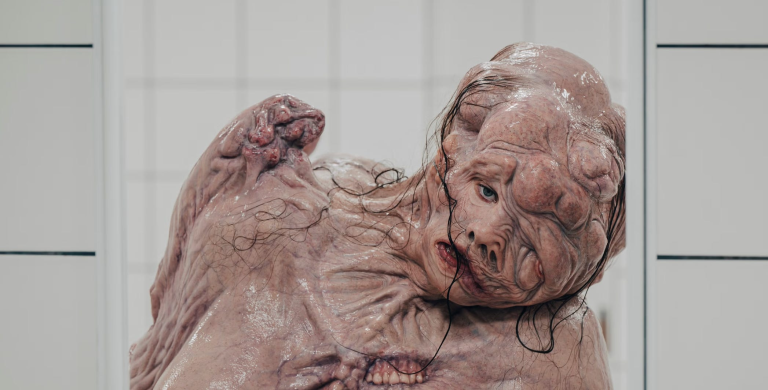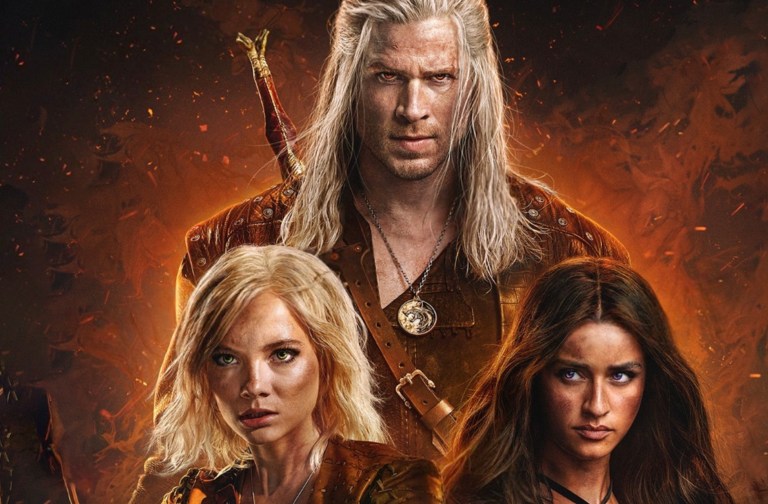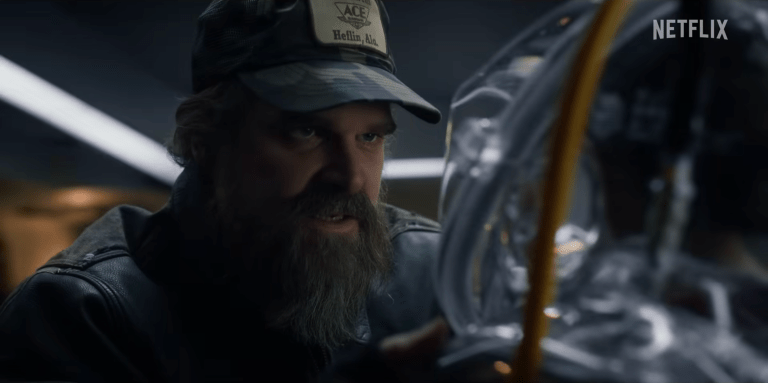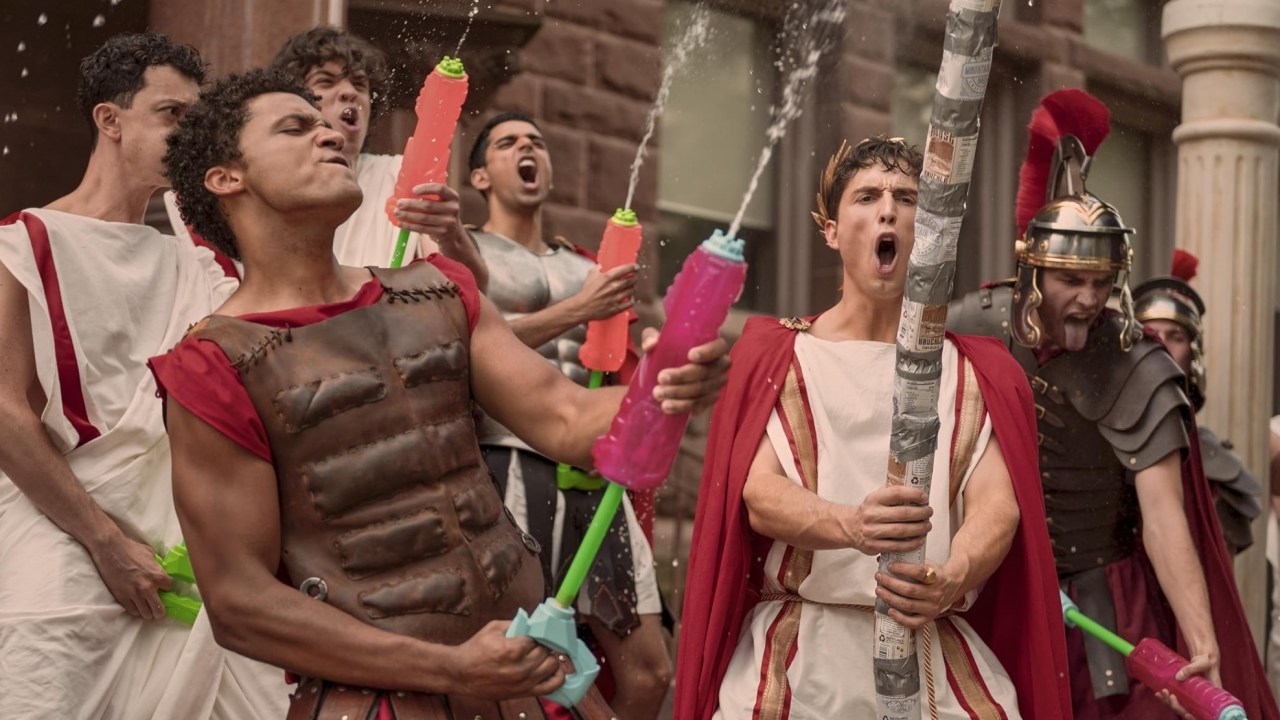
Amazon’s Hit Series ‘Overcompensating’ Will Transport You Back To The 2010s In The Best Way
Benito Skinner's show about staying in the closet to fit in at college will make you feel like it's 2010 again.
I never thought I’d say this, but anything set in the 2010s is now a period piece.
Glee, the second Obama administration, and M.I.A. ‘s middle finger at the Super Bowl may feel like they were just yesterday, but they were not. Anything referencing those things is now outdated. We are now all old. Even Zoomers. (Unless you’re one of the younger Zoomers who’s still in middle school, in which case you shouldn’t be reading this! Stop being skibidi and go to class!)
Anyway, just think about it. Someone born in 2012 would have no recollection of that year. Their memories would begin around 2015 and anything before then would be considered “the past.” It would be like Taylor Swift thinking about the Fall of the Berlin Wall. Though it happened in her birth year, it would still feel to her like ancient history. This is also why Prime Video’s Overcompensating has the vibe of a period piece. Even though it does not explicitly market itself as such, it’s very much rooted in the 2010s, and will resonate with anyone who was post-pubescent during that time. But to anyone born after 2012, the 2010s are now ancient history.
Here are all the ways in which Overcompensating will whisk you away to the 2010s.
Casual misogyny
The show follows Benito Skinner’s Benny, a freshman and former jock who’s attempting to climb the social ladder at his college while keeping his shameful gayness a secret. But to maintain his closeted status and shield himself from homophobia, he must manipulate everyone around him — including his female bestie Carmen (Wally Baram), whom he meets on Day 1 and quickly elevates to girlfriend status.
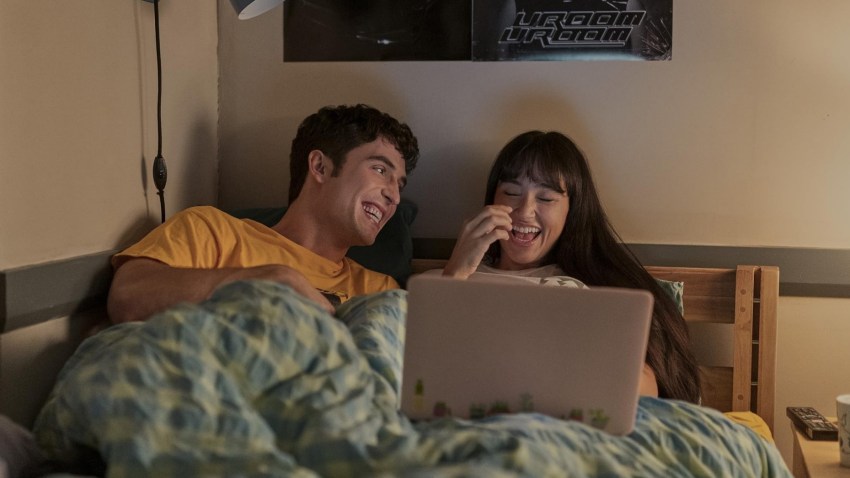
But perhaps Benny wouldn’t feel such pressure to remain closeted if his male fellow classmates weren’t so GD broey. As the obnoxiously toxic Peter, Adam DiMarco plays hilariously against type and engages in misogynistic banter that demeans all women who dare to be sex-positive. It’s hard to believe now, but this sort of casual misogyny was even more widespread in the early 2010s. This was before Insta and TikTok rapidly radicalized many leftie millennials.
Speaking of social media…
Perhaps the biggest tipoff that Overcompensating takes place in the early 2010s is its prominent usage of Facebook and Twitter as plot points. Now that Facebook is crawling with Republican grandparents and Twitter has been infected with the anti-woke mind virus, no self-respecting leftie college student would ever use these apps. But in the early 2010s, Facebook was still very new and very fresh, and it was the coolest way to connect with other students on campus.
Super soundtrack
If the show’s social media choices don’t give away its setting, then the soundtrack definitely does. Even though Charli xcx shows up at one point in a head-scratching anachronism, the show’s characters gleefully sing Nicki Minaj’s “Super Bass,” Wiz Khalifa’s “Black and Yellow,” and even Far East Movement’s “Like a G6.” I’d bet you $1,000,000 that Gen Alphas don’t even know what a G6 is. Wait, I don’t either, actually.
Sickies!
Benito Skinner, who plays the series’ freshman protagonist, is obviously 30, but his character is obviously not. He tends to use the adjective “sick” a lot — a very early-2010s-esque verbal crutch. His broier friends also rely on the filler term “Yeeeee,” which has similarly fallen out of style as of 2025. In the world of Overcompensating, “Fire,” “slay,” and “rizz” are nowhere to be found, percolating as they are at the darkest margins of Internet culture, waiting to be discovered by Zoomers.
Amanda Knox
Remember when Amanda Knox was the most controversial thing to happen to pop culture since The Simple Life? That famed would-be murderess gets a special shout-out early in this show when a character hilariously tries to piggyback off her name for social cred.
As if that weren’t 2010-ish enough for you, “Twihards”, Glee, and Jennifer’s Body all get namechecked in memorable ways. (Yes, Glee was still very popular in the early 2010s; and yes, it’s hard to believe now.)
Friendly fire
We have now arrived at the most 2010s-esque characteristic of all: Casual homophobia! While right wing Americans have since unmuzzled themselves and unleashed their virulent homophobic feelings all across the Internet, casual homophobia was once common among lefties, too. See: the Overcompensating scene in which a barista calls a coffee order “the gayest drink possible” as a joke. Today, a barista would never! Well, maybe the barista at, like, the Republican National Convention. But still. Wow, now that I think about it, the world has actually come a long way in terms of attitudes towards queerness. Maybe we should be celebrating that more.
Sick!!!
